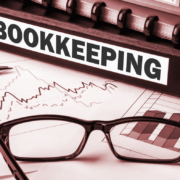Congratulations On Selling Your Business: What Happens Next?
- Learn about 3 key considerations when selling your business.
- Find out how QSBS stock exclusion could help you exclude some or all capital gains when you sell.
- Discover important healthcare options to consider when selling your business.
- Learn how a charitable donation strategy could benefit you at tax time.
One of the most important things to understand about selling a business is that this is not a decision that should be made lightly.
This is true both in terms of who you sell to and with regard to what will happen to your finances after. You need a solid financial plan in place ahead of time. A financial plan will make the most of the sale. It will also guarantee that you'll live as comfortably as possible afterward.
The Art of Selling Your Business
So, what’s the most important step you can take in terms of selling your business? It actually occurs before the sale even happens: planning ahead.
When you sell your organization, especially if you're lucky enough to do so for millions of dollars, you generate enough of a profit to live comfortably for several years. But you must think ahead in terms of how you maximize those profits with regard to the taxes you will have to pay.

QSBS Stock Exclusion
A great strategy for long-term investors is QSBS stock exclusion. This permits shareholders of certain qualified small businesses to exclude a significant portion or all of their associated capital gains when selling or exchanging that stock if they've held it over five years.
The point is that you're maximizing the income that you're actually making from the sale of your company. This ultimately should be the goal of any entrepreneur. So planning ahead can literally save you millions in tax liability and higher take-home cash. QSBS is just one example of possible tax strategies.
Healthcare Options
Another critical step to take after selling your business involves evaluating all healthcare options available to you. In a lot of situations, entrepreneurs will sell their company prior to the age of 65. This means they are not yet eligible for Medicare.
Depending on the nature of the sale, they may be able to stay on a company-sponsored health insurance plan. They may also be able to get coverage through a spouse who is still employed. But what if neither of these things is true? They're likely going to need to find coverage on the open market. This can amount to thousands of dollars every year.
This is why working with insurance brokers and other financial professionals is key. It can help make sure your health insurance needs are taken care of within the context of the impending business sale.
It's critically important to think about this if you also have a chronic health condition like diabetes. It may not seem like a big expense prior to the sale, but health conditions come with doctor's visits, expensive prescriptions, etc. You need to make sure that you're not being short-sighted. You must get the necessary care you need while still maximizing the profits from the sale at the exact same time.
Charitable Donation Strategy
Finally, when it comes to taxes, it's also important to look at a charitable donation strategy — especially if you'll be cashing in company stock as you exit the business entirely. Making a significant charitable donation during the same year in which you sell your company is hugely beneficial. It can help counteract much of the regular income taxes that you would be forced to pay as a result of the transaction.
In the end, selling a business is never an easy decision. You've devoted a significant portion of your life to building something special. Parting with it is always going to be difficult.
However, from the financial side of the equation, so long as you follow a few key best practices, you'll be able to enjoy all of the benefits of this process with as few of the potential downsides as possible.
Want more information about what happens in the wake of selling your business? Have any additional questions that you'd like to go over with someone in a bit more detail? Call Fiducial at 1-866-FIDUCIAL or make an appointment at one of our office locations to discuss your situation.
Ready to book an appointment now? Click here. Know someone who might need our services? We love referrals!
For more small business COVID-19 resources, visit Fiducial’s Coronavirus Update Center to find information on SBA loans, tax updates, the Paycheck Protection Program, paid sick and family leave.









